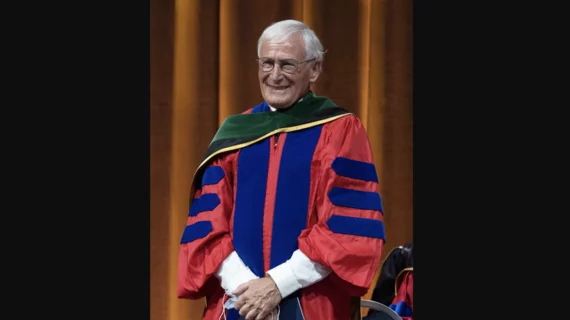Cardiology pioneer, known for performing world’s first TAVR, remembered as a ‘true visionary’
Alain Cribier, MD, a veteran interventional cardiologist known for performing the very first transcatheter aortic valve replacement (TAVR), died on Feb. 16. He was 79 years old.
Cribier first discovered his passion for cardiac surgery at the University of Paris in the 1960s and spent the bulk of his career treating patients at Rouen University Hospital in France.
He told the American College of Cardiology (ACC) in 2022 that his colleagues thought he was “certainly crazy” for trying to implant artificial heart valves using interventional techniques, but this criticism did not stand in Cribier’s way. He completed the world’s first TAVR in an inoperable patient in April 2002, and the procedure went on to be one of the defining healthcare achievements of the last 50 years.
In addition to his innovation in the TAVR space, Cribier also performed the first balloon aortic valvuloplasty in 1986.
“A true visionary has passed,” ACC President B. Hadley Wilson, MD, said in a statement. “From the first days of balloon aortic valvuloplasty nearly 40 years ago, through the first-in-man TAVR 20 years ago, until today where TAVR is now the standard of care, Dr. Cribier always remained humble and committed to his colleagues and the betterment of patient care. The field of cardiology is forever changed because of his vision, leadership and persistence.”
Franz Weidinger, president of the European Society of Cardiology (ESC), took to social media to share his own thoughts on Cribier’s passing.
“He was a giant in his field and combined his great expertise with a touching kindness and modesty,” Weidinger said. “ESC and the global cardiology community lose a friend, scientist, clinician, mentor and above all an outstanding personality. Our thoughts and prayers are with his family and loved ones.”
A long list of other cardiologists, surgeons, healthcare vendors and medical societies have shared their own comments on Cribier’s lasting legacy. Hany I. Ragy, MD, an interventional cardiologist with the National Health Institute in Egypt, said that Cribier may have died, “but his name lives on forever.” Edwards Lifesciences, meanwhile, said his “relentless pursuit of knowledge and commitment to advancing cardiology have shaped the field and improved patient outcomes.”

